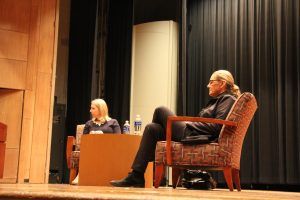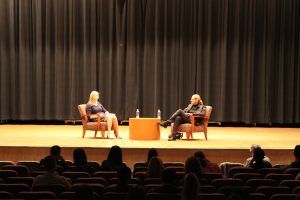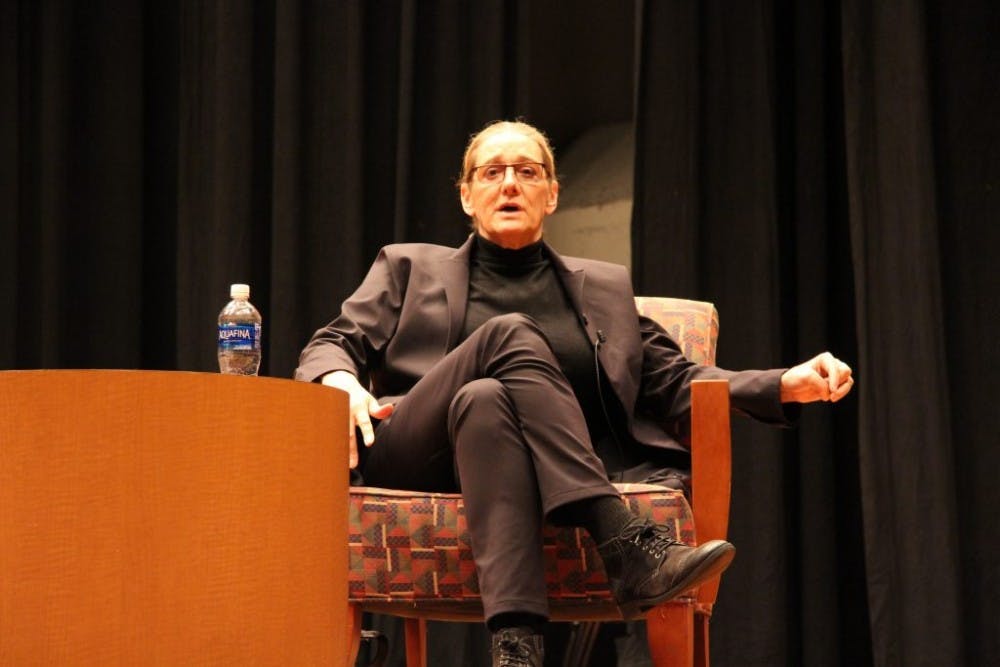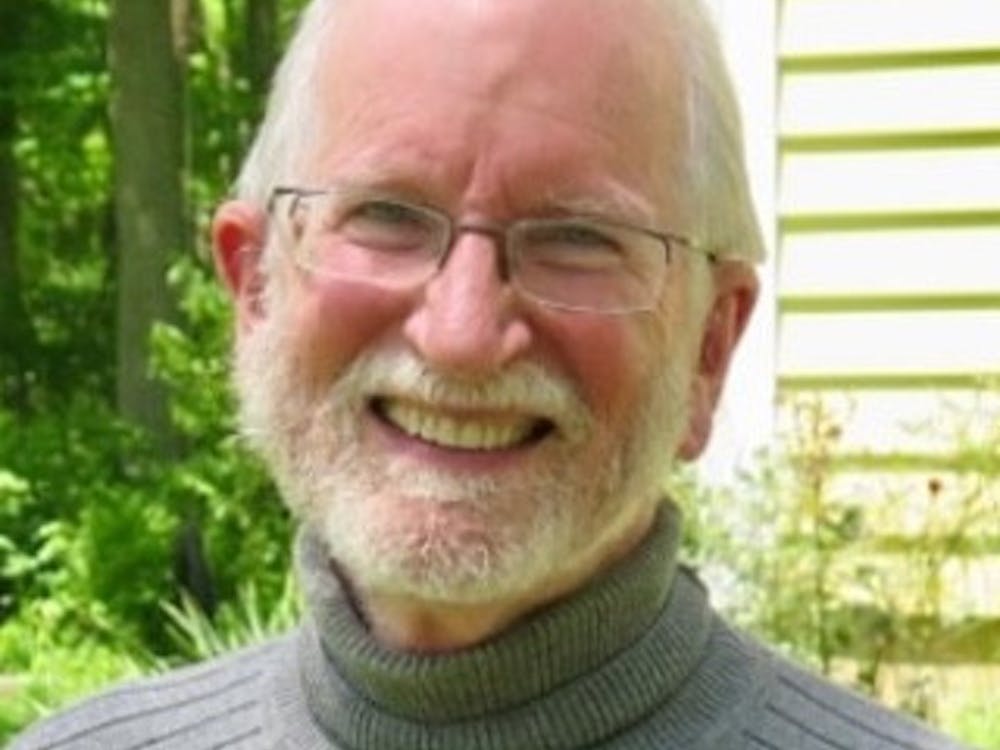Martine Rothblatt, a transgender activist, the founder of Sirius Satellite Radio and CEO and founder of United Therapeutics, spoke in Shriver Hall on Wednesday as part of the Milton S. Eisenhower Symposium (MSE).
Rothblatt spent the bulk of the talk describing the origin story of United Therapeutics, a pharmaceutical and biotechnology company, but she also touched on being a transgender woman in business and on the impact of Sirius Radio.
Christy Wyskiel, who advises University President Ronald J. Daniels on technology, commercialization and entrepreneurship, facilitated the first half of the presentation. The second half was a question and answer session open to the audience.
Rothblatt’s daughter Jenesis was diagnosed with pulmonary arterial hypertension, a rare disease that is often fatal. The medicine necessary to treat her daughter was hard to obtain because of its low profitability.
“We did finally persuade GlaxoSmithKline to sell us the medicine. We did finally find a way to manufacture, deliver, clinically develop it and get it approved by the FDA, and today the medicine generates over a billion dollars a year in sales,” Rothblatt said. “There were 3,000 people with pulmonary hypertension, there’s now over 30,000 people because all those people who had otherwise died are now alive, taking our medicine.”
Rothblatt also discussed the themes of her most recent book, Virtually Human: The Promise — and the Peril — of Digital Immortality. Free copies were given out at the event.

“That book summarizes my perspective on the likelihood of machine consciousness within our lifetimes, the fact that artificial consciousness will be the extension of flesh people, and... society will want to impose on them legal obligations,” Rothblatt said.
Her background in law provided the impetus for her book.
“I couldn’t stop thinking about what would be the legal rights of spiritual machines, what would be the legal rights of mind clones — which would be an artificial form of consciousness based off a biological person — mannerisms, personality, recollections, feelings, beliefs and value,” she said.
Rothblatt also reflected on her life as a transgender woman.
“I’m really lucky to be alive in the 21st century,” Rothblatt said. “Because I always felt transgender, I did always feel that I didn’t want to be stuck or labeled as a male, but of course, if I lived in the 1900s or something, I would’ve been probably beaten or killed, and in many parts of the world today, that’s what happens to transgender people: They’re beaten or killed.”
She went on to describe examples of discrimination transgender people experience.
“In the U.S. itself, I would say that the vast majority of transgender people have faced rampant discrimination,” Rothblatt said. “It’s perfectly legal to fire someone just because they’re transgender. It’s perfectly legal to kick someone out of an apartment just because they’re transgender, it’s perfectly legal to do all sorts of horrible things.”
She expressed gratitude for the acceptance she received when she came out.
“First and foremost... I’m grateful that I’m alive right now and that my family was totally supportive and all of my business colleagues have been very supportive,” Rothblatt said. “I feel a real obligation to do what I can to make life better for other transgender people.”
Osiris Mancera, an undergraduate intern with the Office of LGBTQ Life, applauded the work that Rothblatt has done for transgender advocacy and awareness.
“She’s been through so much and even so has come to achieve so much, being the highest paid female exec in the U.S.,” Mancera said. “And with the power she’s acquired she’s sought to enlighten the world with the issues that matter most. She fights for us and that means more than anything... [H]opefully our future looks brighter and we can transcend all of the hatred and ignorance in our country with people like Rothblatt as our influence.”
Although student turnout was low compared to events of this year’s earlier speakers, the students who attended reacted positively to the event.
Senior Michael Guo, who interned for United Therapeutics over the summer and was already very familiar with that side of Rothblatt’s work, said it was interesting to learn about other issues she discussed.
“I thought it was nice to hear the topics about robotics and even the transgender stuff that you definitely can’t talk about in the workplace so I thought this talk was definitely useful covering those aspects,” Guo said.
Senior Steven Chen agreed and found the talk interesting.
“I like hearing her talk about the inception of United Therapeutics and that origin story,” he said. “I feel like I don’t know if I would’ve looked that up on my own, I would’ve just assumed she started a therapeutics company, but the fact that it comes from such a personal place and came from overcoming such adversity is a really inspirational point and I think that’s cool.”
The wide range of the topics Rothblatt could cover was one of the reasons MSE decided to invite her to speak at Hopkins, according to MSE Finance Chair Sam Sands.

“Rothblatt can touch on a lot of different issues and a lot of very contentious and sort of hotly debated issues today. She is transgender, she is a high ranking woman in the workforce, so she has very personal experience with these different issues, but also she has very deep and passionate opinions about these issues,” Sands said. “So being able to touch on those topics in a very educated and interesting point of view made her an ideal candidate to bring in.”
According to MSE Marketing Chair Olivia Choi, the range of topics that Rothblatt could comment upon was the primary purpose of bringing in her to campus. Choi described Rothblatt as a multidimensional speaker.
“It wasn’t just one aspect of her career or her story that made us really drawn to her, it’s just that she’s such a multifaceted person,” Choi said. “Whether it’s humanities, medicine or engineering, anyone can listen to her story and get something from it. So we wanted to bring someone that students and the Baltimore community could listen to and get inspired by.”

















